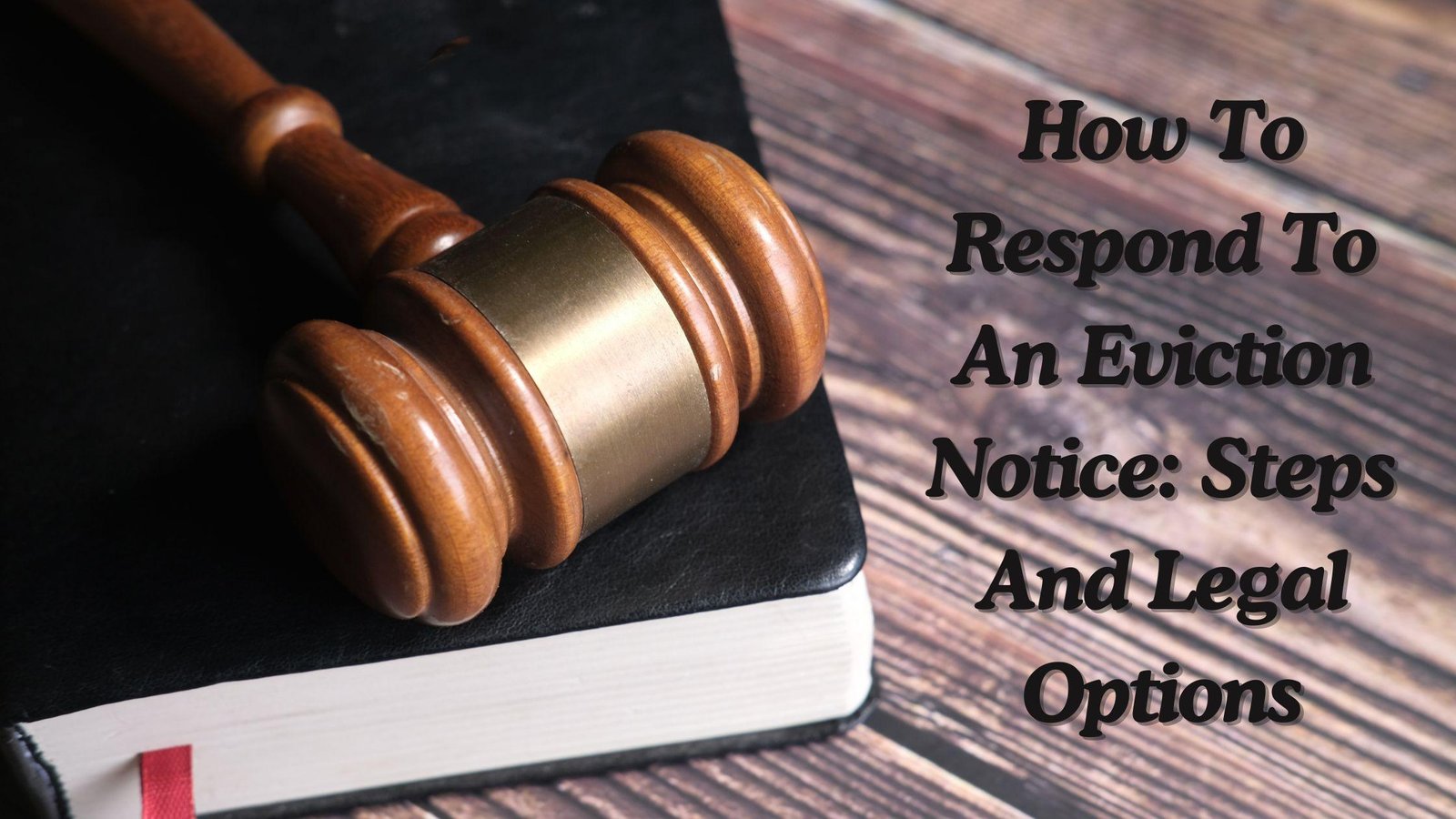
How To Respond To An Eviction Notice: Steps And Legal Options
We all know that facing an eviction notice can be stressful and overwhelming. In this situation, knowing your rights and the steps to take can make the process smoother. Yes, you’re reading it right. Well, you don’t know how to respond to an eviction notice? If so, this guide will help you. Here, you’ll find out what to do when you receive an eviction notice and explore your legal options.
What is an Eviction Notice?
An eviction notice is an official document from a landlord to an occupant indicating that the tenant must evacuate the property within a specified period.
Here’s more about it.
- This notice is often the first step in the legal eviction process.
- It outlines the reasons for eviction, such as non-payment of rental amount, violation of lease terms, or illegal activity on the property.
- The notice will also include the time frame within which the tenant must address the issue or leave the premises.
- Receiving an eviction notice can be alarming, but understanding its purpose is crucial to responding appropriately.
Who Gets an Eviction Notice?
Eviction notices are typically served to tenants who have breached their rental agreements. Common reasons for receiving an eviction notice include failure to pay rent, causing significant property damage, or engaging in unlawful activities on the premises.
However, sometimes landlords may issue eviction notices for less clear reasons, such as wanting to reclaim the property for personal use or sell it. It’s important for tenants to know that they have rights and there are legal steps they can take to challenge an unjust eviction notice.
Types of Eviction Notices
There are a variety of eviction notices, each serving a different purpose and requiring a specific response from the tenant:
- Pay or Quit Notice: This notice is issued when the tenant has failed to pay rent. It gives the tenant a specified period (usually a few days) to pay the overdue rent or vacate the property.
- Cure or Quit Notice: Issued when a tenant has violated a lease term, e.g., having a pet in a no-pet building, this notice gives the tenant time to rectify the violation or leave.
- Unconditional Quit Notice: This is the most severe type of eviction notice and requires the tenant to move out without the opportunity to correct the issue. It is typically used for serious violations, such as repeated late rent payments or illegal activities.
- No-Cause Notice: In some jurisdictions, landlords can issue a no-cause notice to terminate a month-to-month tenancy without providing a reason. However, they must give the tenant a longer period to vacate.
Understanding the type of eviction notice received is crucial as it determines the tenant’s next steps and possible defenses.
How to Respond When You Get an Eviction Notice
Responding to an eviction notice promptly and correctly can make a noteworthy difference in the outcome. Here are the steps you should take:
- Read the Notice Carefully: Understand the reason for the eviction and the type of notice received. Note the deadlines for any actions you need to take.
- Check Your Lease Agreement: Review the terms of your lease to ensure the landlord’s claim is valid. Look for clauses that may provide you with defenses against the eviction.
- Communicate With Your Landlord: If the notice is due to unpaid rent or a lease violation, try to resolve the problem directly with your landlord. Paying the overdue rent or correcting the violation might resolve the matter without further legal action.
- Seek Legal Advice: If you assume the eviction is unjust or you need help understanding your rights, consult with a lawyer or a tenant’s rights organization. They can provide the required guidance and represent you in court if necessary.
- Prepare for Court: If the issue cannot be resolved and the landlord proceeds with a court eviction, gather evidence to support your case. This might include payment receipts, communication records, or witness statements.
- Attend the Hearing: It is crucial to attend the eviction hearing. Present your case clearly and provide all relevant documentation. Failure to attend can result in an automatic judgment against you.
Conclusion
Overall, receiving an eviction notice can be daunting, but knowing your rights and the moves to make can help you navigate the proceedings more effectively. Always read the notice carefully, understand the type of eviction, communicate with your landlord, seek legal advice, and be prepared for court if necessary.
Remember, you have options and rights as a tenant. You can better manage this challenging situation and protect your housing stability by staying informed and proactive. If you need additional support, consider reaching out to organizations like Innerwork, which provides legal advises and private investigation services to help you through such times.






